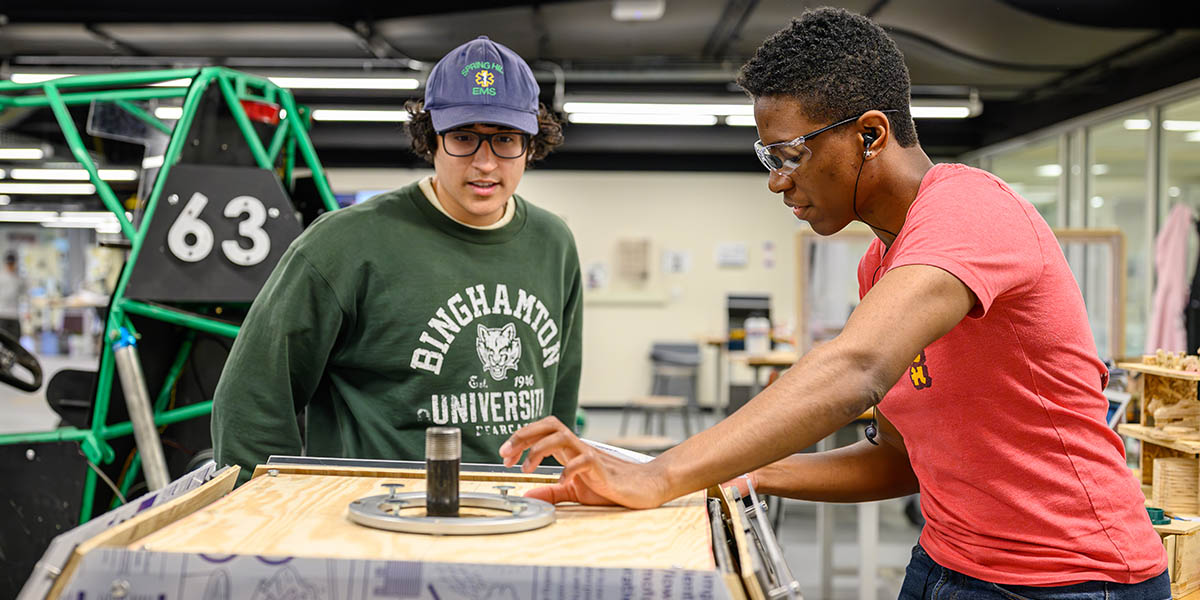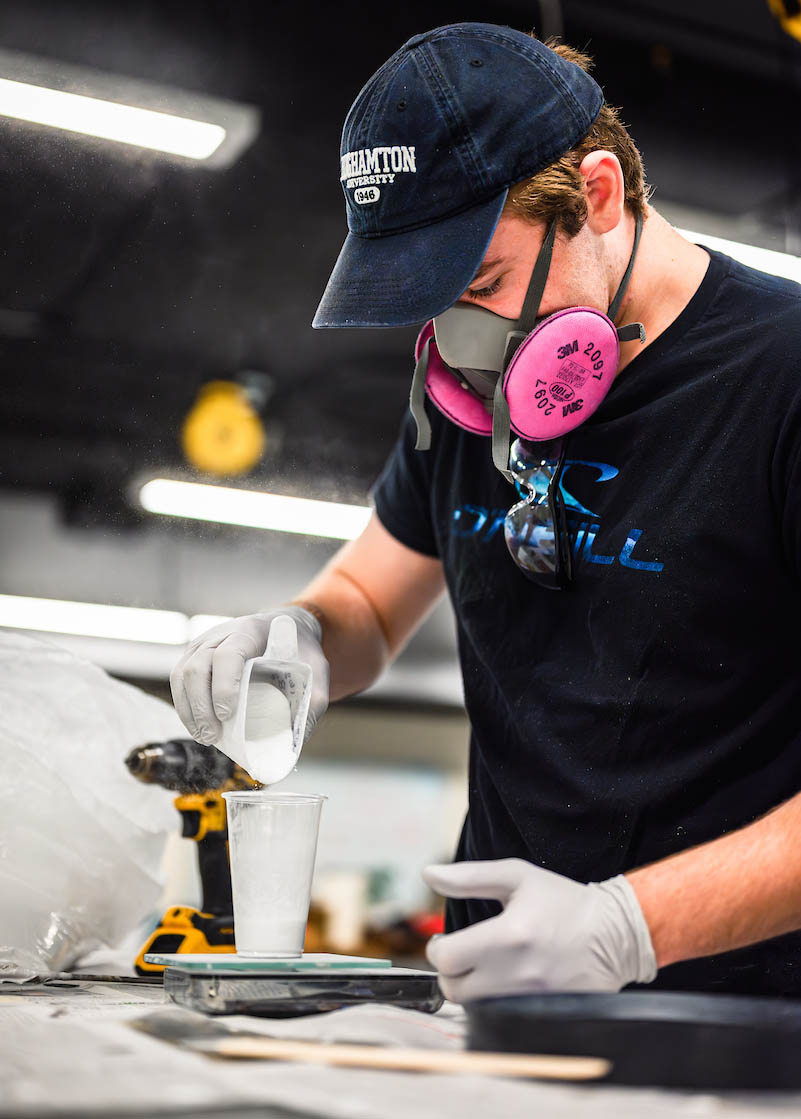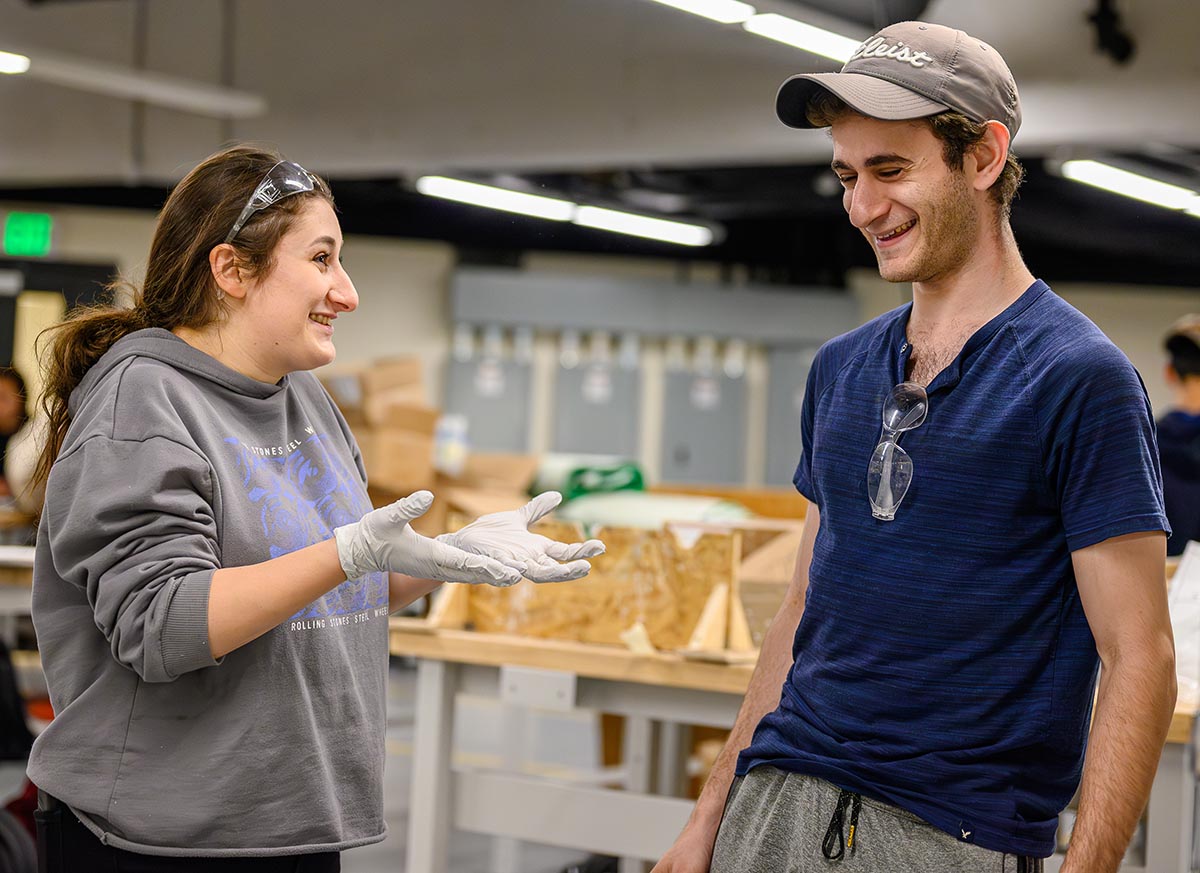Watson College’s Fabrication Lab is where ideas become reality
Students work on class projects and more at Engineering Building space

Part of fostering a world-class education is providing amazing spaces where students can pursue their classwork and projects.
That’s why the old Student Shop got a complete makeover as part of the $22 million renovation of the Engineering Building from 2019 to 2021. The utilitarian layout that was subdivided with equipment for various tasks has become an open, collaborative space rebranded as the Watson Fabrication Lab that can be reconfigured for any needs.
At the Fab Lab, students work on class projects, Binghamton Motorsports team members build SAE Formula and Baja competition vehicles, and the Rover Team perfects the latest planet-exploring entry for competition. They also meet just to hang out and do homework. Windows looking in from the hallways make the Fab Lab a popular stop on campus tours.
“I’m here at 7:30 in the morning, and there’s usually somebody here shortly after that either anxious to get in and just use the space or start working on projects,” says Vince Brady, MS ’03, Watson College’s director of engineering laboratories and learning environments who oversees the Fab Lab. “We’ve created somewhere that students want to spend time in and meet their friends or just do whatever they need to do.”
Although Watson College is not a technical school for machinists or welders, having an appreciation for the capabilities of the available tools makes better designers and engineers.
Among the machines and tools available in the Fab Lab are CNC and manual lathes, milling machines, a water jet, drill presses, bandsaws, welding equipment and other power tools, along with a full selection of 3D printing resources. To gain access to the Fab Lab, students must take safety training to prevent injuries, and a team of instructional support technicians can help along the way.
The technicians’ role has changed along with the Fab Lab itself. In addition to being skilled machinists who aid students and fabricate needed parts, they now play a more active role in consulting and advising on projects.
“They’re truly ambassadors to the student body and Watson departments,” Brady says. “I always like to say that our team is in the solutions business. If you have a problem, we want to sit down, have a discussion and see what we can do to help solve it.”
Getting more involved in what students are doing — especially senior capstone projects, which are required for graduation by every Watson major except computer science — gives Brady and his team a better idea about what new equipment is needed to support the students. Also, the Fab Lab can enhance the opportunities for students to learn outside the classroom.
“Part of the evolution of the Fab Lab is to do some education without being tied to the curriculum,” he says. “We can introduce new technology, new software and other things that supplement their academic education.”



